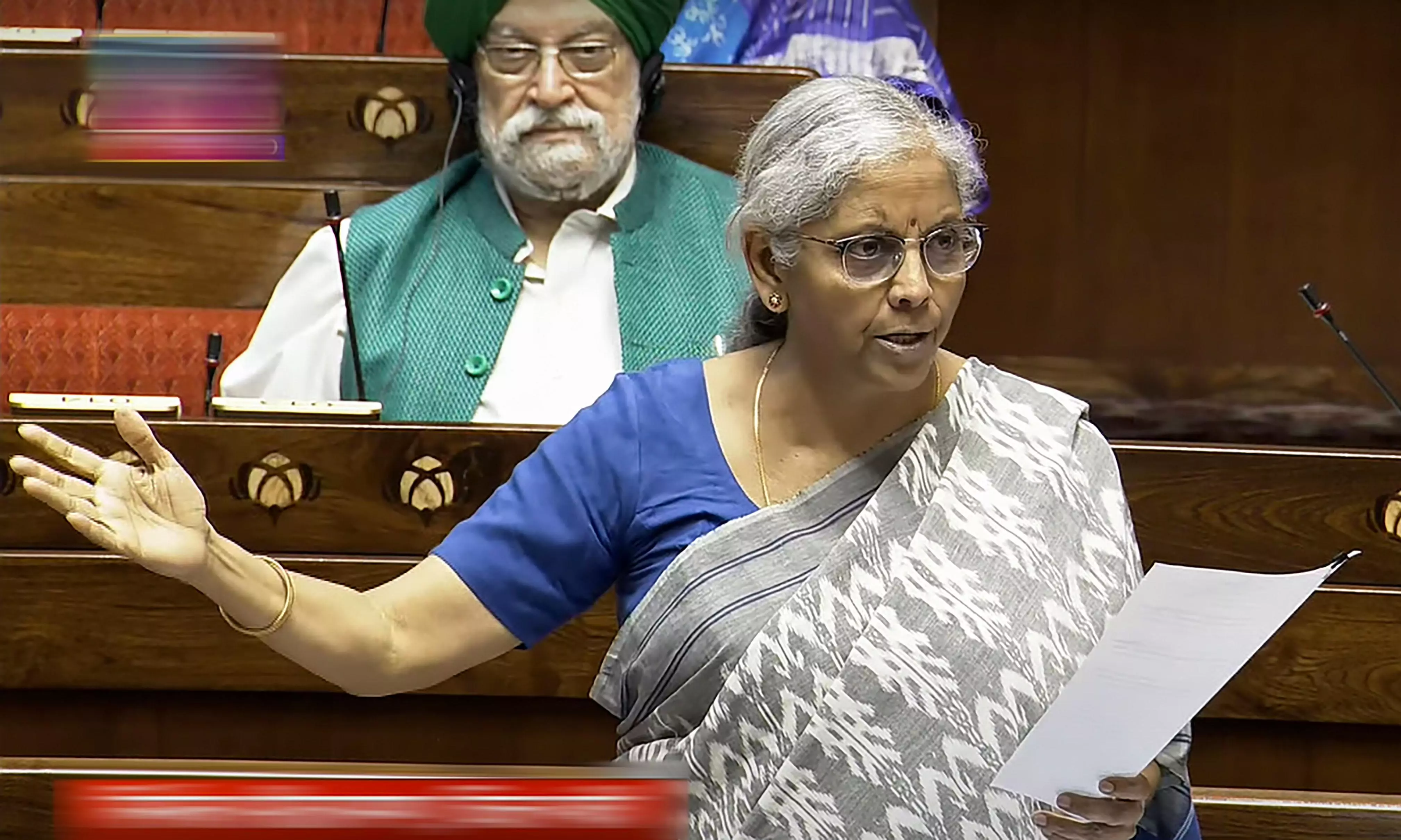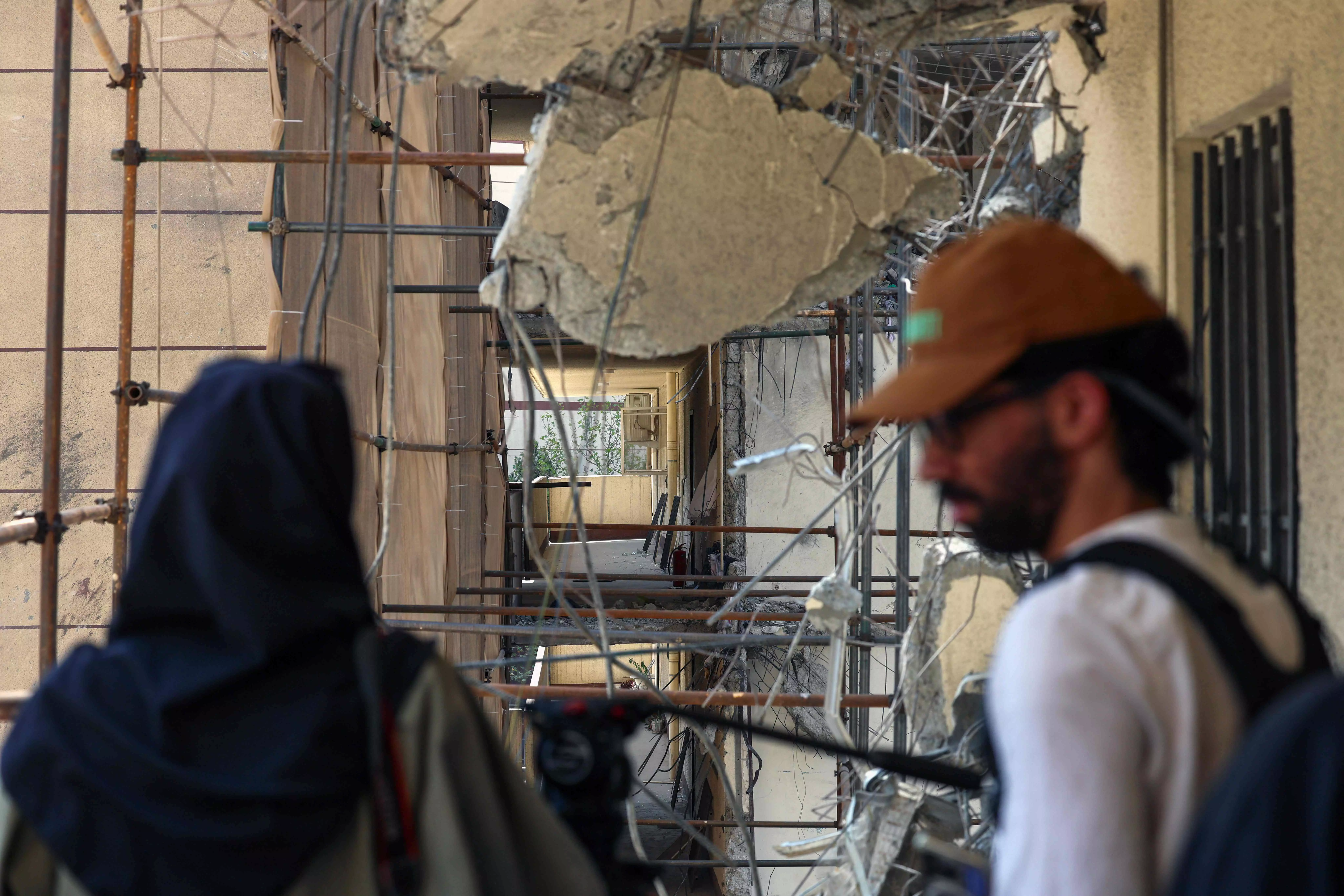
New Delhi: Defending the Union Budget for the fiscal year 2024-25, Union finance minister Nirmala Sitharaman on Wednesday called it a fine balance between growth, employment, capital investment and fiscal consolidation, among others. While replying to the discussion on the Union Budget in the Rajya Sabha, Ms Sitharaman said that the Budget has taken into consideration all sectors of the economy, aids employment generation and supports cooperative federalism.
The Union finance minister also attacked the Opposition bloc, especially the Congress, which raised several issues, including Budget allocations, inadequate funds for J&K, agriculture and allied sectors, high inflation, etc.
Replying to the discussion, Ms Sitharaman said that the Budget has taken into consideration all sectors of the economy and that every state is allocated sufficient funds.
“The Budget strikes a balance with various aspects of growth. IT proposes unflinching support for cooperative federalism as well…”, the Union minister said, adding that the financial position of the Union territory of Jammu and Kashmir has improved and J&K Bank has made a turnaround and posted a profit.
“I would like to underline our unflinching commitment to cooperative federalism. The total resources proposed to be transferred to the states in 2024-25 are estimated at `22.91-lakh crores, which actually entails an increase of `2.49-lakh crores over 2023-24,” the finance minister said.
Ms Sitharaman said: “On the General Budget, the capital expenditure in the last 10 years of the Narendra Modi government stood at `43.82-lakh crores, compared to `13.19-lakh crores during the decade-ago rule of UPA.”
On fiscal position, Ms Sitharaman said that the government is complying with the fiscal deficit trajectory. “It will bring down the deficit to below 4.5 per cent by 2025-26 from the targeted 4.9 per cent for the current fiscal. For agriculture and allied sectors, the Budget has allocated `1.52-lakh crores, which is `8,000 crores more than the previous year. And for comparison, in 2013-14, the last year of Congress-led UPA, only `30,000 crores was allocated for agriculture,” she added.
Referring to the inflation scenario in the country, the Union finance minister also said that India’s inflation in 2022-23 was much lower than the global average, whereas, after Covid-19, many economies faced double-digit inflation.
“Strategic policies adopted by India to contain inflation included the free food grain scheme, offloading of wheat and rice under the open market and price stabilisation funds, which maintain a buffer stock of pulses. Duty on crude edible oil was cut too,” she added.
On thr Agniveer issue, the Union minister said it is a reformative step to enhance the capabilities and battle readiness of our armed forces. “It ensures that we have fit soldiers on the frontlines. One of the expected outcomes of this scheme is that the armed forces will have a much younger force by recruiting those in the 17.5–21 years age group and retaining only 25 per cent of those reducing the average age,” she said, adding, “While in 2014, the Indian armed forces, particularly the Army, didn’t even have bulletproof vests. Today in our country, we produce bulletproof vests that are good for our Army.”
On education and youth, the finance minister said that the government has already announced measures for education loans in the Budget to help our youth, who have not been eligible for any benefit from any government policies or schemes.
“We have announced a financial support of `10 lakhs for higher education. e-vouchers for this purpose will be given to 1 lakh students, with 3 per cent interest,” she said.
Ms Sitharaman attacked the Opposition on the Neet exam row, saying that the Supreme Court did not scrap the Neet exam. “Neet does not disadvantage anyone… Tamil Nadu students procure 85 per cent of the seats under the 69 per cent reservation in that state.”
Her remarks met with protests by the DMK MPs, who urged the finance minister to talk over the paper leak issue and the rising suicides among Neet aspirants.
“In 2011, there were only 1,945 medical seats in Tamil Nadu. At present, there are 10,423 seats in the state. Neet has ensured cost-effective medical education for backward families and hurt certain vested interests,” said Ms Sitharaman, listing out the names of several students from humble backgrounds who have cracked the medical entrance exam.
On manufacturing and productivity, Ms Sitharaman said that the PLI schemes continue to remain attractive for the manufacturing sector. “The Budget is an exercise to make India an attractive destination for manufacturing companies,” she added.
Ms Sitharaman dismissed the Opposition’s claim over “cutting borrowing ceilings of non-BJP states”, saying that the Central government follows the recommendation of the 15th Finance Commission for issuing borrowing consent financial year-wise uniformly to all states.
“The 15th Finance Commission had recommended performance-based additional borrowing linked to performance as per sector reforms. We want to dispel the argument that the Centre cuts borrowing limits of some states,” she added.






